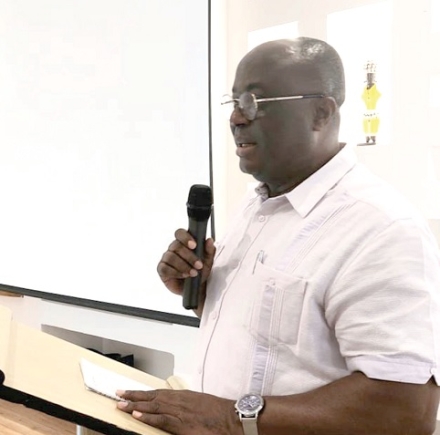
Project to produce high-yielding seeds underway
As part of efforts to improve the agricultural sector in the country, a project to produce quality seeds for farmers to increase yields is underway.
The phase II of the West Africa Food System Resilience Programme (FSRP), which started last year, is supporting farmers, especially those in rice, maize and soya beans cultivation to increase production.
Research institutions such as the West Africa Centre for Crop Improvement (WACCI), the Crops Research Institute, the Savanna Agricultural Research Institute and the Plant Genetic Resources Centre, Bunso, were being assisted to produce the high-yielding seeds.
It is expected that by March this year, the research institutions would be able to produce the seeds for farmers.
The Programme Coordinator of FSRP, Osei Owusu-Agyeman, who said this in an interview with the Daily Graphic on the sidelines of a media engagement in Accra, identified poor seedlings as a major setback to agriculture in the country.
The event was attended by some selected senior journalists to enable them to understand details of the programme to communicate better to the people.
The second phase of the five-year (2023-2028) FSRP, covers Ghana, Chad and Sierra Leone.
In Ghana, the $150-million project being funded by the Word Bank Group is being implemented in 55 districts in 10 regions with focus on rice, maize, soya beans and broiler poultry production.
It is being implemented by the Ministry of Food and Agriculture (MoFA), through a combination of adaptive, innovative and sustainable interventions to support vulnerable households, families, farmers and communities to withstand uncertainties and shocks in food production and supply in the sub-region.
The local implementing agencies include the Ghana Meteorological Agency (GMet) the Council for Scientific and Industrial Research (CSIR), the Ghana Irrigation Development Authority (GIDA) and WACCI.
The regional bodies are the Economic Community of West African States (ECOWAS), the Permanent Interstate Committee for Drought Control in the Sahel (CILSS), and the West and Central African Council for Agricultural Research and Development (CORAF).
Situation
Mr Owusu-Agyeman said farmers in the country were doing less than two tonnes per hectare, as compared to Asian countries such as Vietnam, Thailand and China who were doing six and seven tonnes.
“Currently, our farmers need high-yielding, pest-resistant, and disease-tolerant seeds that will help them produce more food.
The seeds they are using now are not of the best quality,” he said.
The project also intends to address the issue of marketing of farm produce.
In line with that, Mr Owusu-Agyeman said although they had identified over 50 warehouses for storage, they were going to pilot with 10 warehouses by improving on their facilities to aid in the value chain of produce, process and marketing.
“The market is not only here, it is for the whole West Africa.
So we should make sure that we develop systems that will enable us to market our produce across the sub-region,” he said.
Beneficiaries
The Operations Manager of FSRP, Philip Daniel Laryea, who gave an overview of the project, said a total of 300,000 farmers would directly benefit from the initiative, 40 per cent of whom are expected to be women.
He said it would also develop systems to support farmers use technology to upgrade their activities.
Mr Laryea said the project was an aspect of the government’s flagship Planting For Food and Jobs programme.
